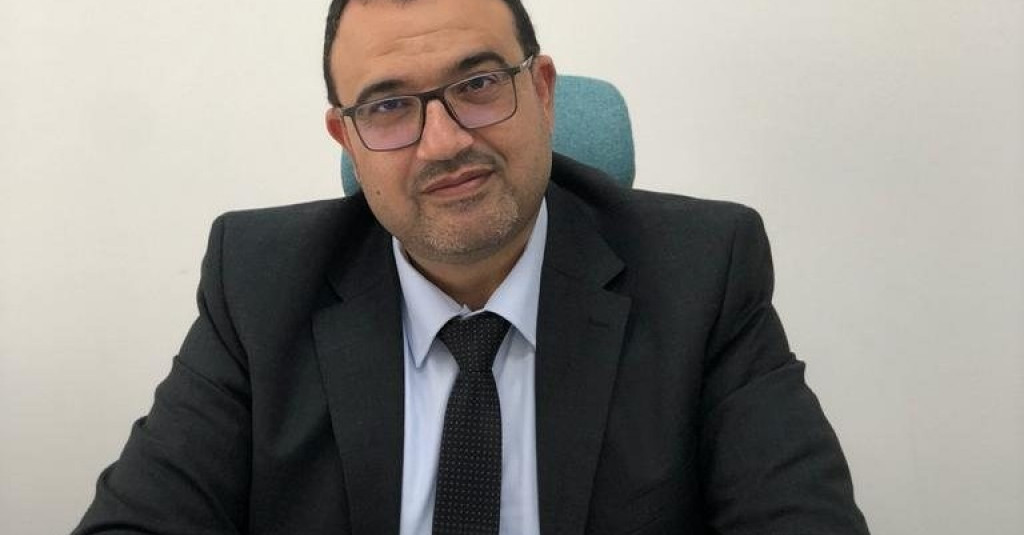Prof. Mohammed Al-Betar: Expanding the Frontiers of Artificial Intelligence Research at Ajman University

Artificial Intelligence is all about possibilities. To say that AI is making the unthinkable happen will not be an exaggeration, as AI is rapidly expanding the boundaries of human intelligence. For instance, AI can help patients regain movement after strokes by improving devices that can read brain signals. Enhanced by AI, these devices can better interpret brain activity and identify optimal treatment patterns for stroke patients.
That’s just one of several impactful research projects by Prof. Mohammed Al Betar, Coordinator of the Master of Science in Artificial Intelligence (MSAI) program at Ajman University and Head of its Artificial Intelligence Research Centre (AIRC).
Prof. Betar a leading academic and researcher who was recently included in Stanford University’s list of the top 2% of global scientists for 2024, is excited about expanding the potential of AI through research.
He takes us through another of his studies that involves a non-invasive method to monitor blood sugar levels using AI. It predicts glucose levels accurately and quickly without the need for blood samples. “Both these applications not only aim to enhance patient care but also work toward making medical procedures less invasive and more efficient,” says Prof. Betar.
His research expands to other areas. For example, in agriculture Prof. Betar is studying the use of AI to detect early signs of disease in barley crops, symptoms that are invisible to the human eye. The AI algorithm-based early detection can prevent widespread crop damage, securing food production and reducing economic losses leading to more sustainable agriculture.
Behind all these impressive applications is theoretical research that might seem daunting to the most seasoned academic. “Theory serves as the foundation upon which AI techniques and algorithms are built,” says Prof. Betar. “It encompasses the underlying principles, mathematical models, and conceptual frameworks that allow one to understand how AI systems function, why they behave in certain ways, and how they can be optimized.”
AI applications get a lot of attention and justifiably so, as they are driving human progress forward in unimaginable ways. In the background however is the rigor of theoretical frameworks that is crucial for those applications to work efficiently and for real, according to Prof. Betar.
“Without a strong grasp of theory, practical innovations and advancements in AI would lack the depth needed to address complex real-world challenges. In other words, the theory of artificial intelligence is what aids the development of strong applications,” he adds.
As a teacher of Artificial Intelligence, Prof. Betar enjoys blending theory and practice to help students translate theoretical AI knowledge into real-world solutions. It involves deploying AI algorithms and models to solve practical problems, such as improving decision-making, and enabling intelligent automation.
The ability to apply the AI theory effectively is what drives technological advancements in areas such as healthcare, finance, robotics, and other industries, he opines. “The MSAI program is literally a hub of innovation in AI. Our students come from diverse industry verticals across both the government and private sectors. And each of them is working on creating AI solutions relevant to their industry,” says Prof. Betar.
Prof. Betar’s future vision for the AIRC is aligned with the University’s overarching vision to enhance industry-academia collaboration in research across key impact areas such as sustainability, renewable energy, agriculture and smart cities.
“The UAE is leading in the application of Artificial Intelligence worldwide, and we have a great supporting environment to create and test innovative AI solutions that would solve some of humanity’s most pressing challenges,” says Prof. Betar.
About AIRC
Prof. Mohammed Al-Betar is the Head of Artificial Intelligence Research Center at Ajman University since 2022. Under his stewardship, the AIRC has published around 600 Scopus-indexed publications on the application of AI across high impact areas such as cybersecurity, medical diagnoses, signal processing, smart cities, smart agriculture and Nanofluidics. This research is helping widen the understanding on how AI could be leveraged for innovative applications in these fields and be used to resolve some of the most complex societal challenges in these areas.